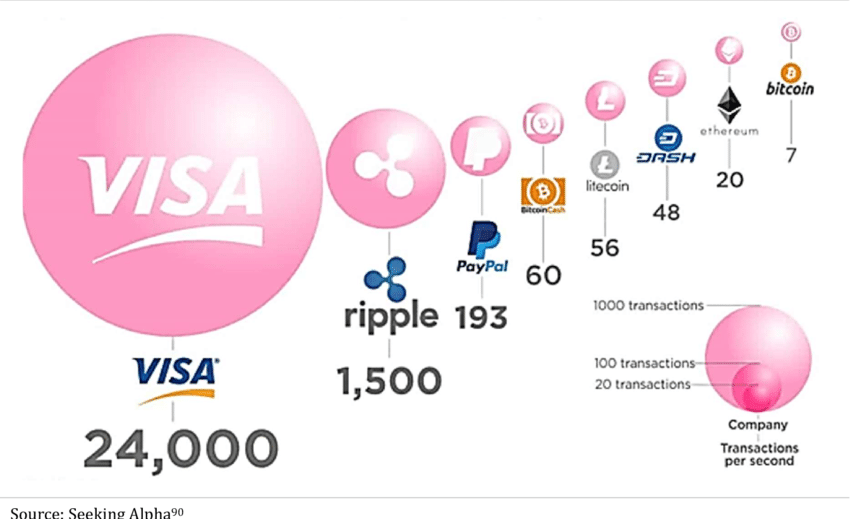As an avid observer of financial trends, I find myself contemplating the question: Can cryptocurrency replace money?
The juxtaposition of a digital currency challenging the centuries-old concept of physical currency raises intriguing possibilities.
In this article, I will delve into the benefits and advantages of cryptocurrency, explore the challenges and limitations it faces, analyze the role of central banks, and assess its potential for mainstream adoption.
By examining these factors, we can gain a deeper understanding of the implications cryptocurrency holds for the global economy and consider its future significance.
Table of Contents
Is Cryptocurrency the Future?
Cryptocurrency’s potential to revolutionize the financial industry is widely debated. Proponents argue that it offers numerous advantages over traditional money, such as decentralization, security, and efficiency.
However, skeptics question its stability, regulation, and widespread acceptance. To determine if cryptocurrency is the future, it is essential to analyze the data objectively.
One key factor supporting cryptocurrency’s potential is its increasing popularity. The total market capitalization of cryptocurrencies has grown exponentially, reaching over $2 trillion in April 2021.

Bitcoin, the most well-known cryptocurrency, has gained significant traction, with a market value exceeding $1 trillion back in 2021. This surge in adoption indicates a growing interest in digital currencies.
Furthermore, the blockchain technology underlying cryptocurrencies offers enhanced security and transparency. Transactions are recorded on a decentralized ledger, making it difficult for hackers to manipulate or alter data.
Additionally, smart contracts eliminate the need for intermediaries, reducing costs and increasing efficiency.
However, there are challenges to overcome before cryptocurrency can replace traditional money.
Volatility remains a concern, as cryptocurrencies are prone to large price fluctuations. Regulatory frameworks are also still in development, with governments grappling to establish guidelines for digital currencies.
Benefits and Advantages
With traditional payment methods like credit cards or cash, there is always a risk of theft or fraud. However, with digital currencies, transactions are encrypted and recorded on a decentralized ledger called the blockchain, making it extremely difficult for hackers to manipulate or steal funds.
Additionally, digital currencies provide users with a greater level of privacy. When making a payment with a credit card, for example, personal information such as the cardholder’s name and address is required.
In contrast, digital currencies allow for pseudonymous transactions, meaning that users can make payments without revealing their identities. This not only protects the user’s privacy but also reduces the risk of identity theft.
Furthermore, digital currencies eliminate the need for intermediaries such as banks or payment processors, which can be vulnerable to breaches or data leaks. By cutting out these middlemen, digital currencies provide a more secure and direct way of conducting financial transactions.
Challenges and Limitations
To fully understand the challenges and limitations, you should consider the scalability issues that digital currencies face.
Digital currencies, like Bitcoin and Ethereum, have gained significant attention and popularity in recent years.
However, one of the main challenges they face is scalability. As the number of transactions increases, digital currencies may struggle to handle the increased load on their networks.
This can result in slower transaction speeds and higher transaction fees.

Another limitation of digital currencies is their volatility. Prices of cryptocurrencies can fluctuate wildly, sometimes within a matter of hours. This makes them less reliable as a medium of exchange and a store of value.
Additionally, the lack of regulation and oversight in the cryptocurrency market can expose investors to potential risks and fraud.
Furthermore, digital currencies face challenges in terms of adoption and acceptance. While more businesses are starting to accept cryptocurrencies as a form of payment, the majority still do not.
This limits the practicality and usefulness of digital currencies in everyday transactions.
Role of Central Banks
Central banks play a crucial role in the economy by regulating the supply of money and controlling interest rates. They are responsible for maintaining price stability, managing inflation, and supporting economic growth.
Central banks achieve this through various monetary policy tools, such as open market operations, reserve requirements, and discount rates.
One of the primary functions of central banks is to regulate the supply of money. They do this by controlling the amount of currency in circulation and the reserves held by commercial banks.
By adjusting these variables, central banks can influence the overall money supply, which in turn affects economic activity and inflation.
Additionally, central banks have the power to set interest rates. By manipulating these rates, they can influence borrowing costs for individuals, businesses, and governments.
Lowering interest rates encourages borrowing and spending, stimulating economic growth.
Conversely, raising interest rates can help control inflation by reducing the demand for credit and curbing excessive spending.
Central banks also act as lenders of last resort, providing liquidity to financial institutions during times of crisis. This ensures the stability of the banking system and prevents widespread financial turmoil.
Potential for Mainstream Adoption
The potential for mainstream adoption of digital currencies is increasing as more businesses and individuals embrace the benefits of decentralized financial systems.
Here are four key reasons why digital currencies have the potential to become widely accepted:
- Accessibility: Digital currencies allow for instant and borderless transactions, eliminating the need for intermediaries such as banks. This accessibility empowers individuals and businesses to transact with ease, regardless of geographical location.
- Security: Blockchain technology, the underlying technology behind digital currencies, provides a secure and transparent ledger of transactions. This reduces the risk of fraud and increases trust in financial transactions.
- Lower transaction costs: Traditional financial systems often involve high fees and lengthy processing times. Digital currencies offer lower transaction costs, making it more cost-effective for businesses and individuals to send and receive money.
- Financial inclusion: Digital currencies have the potential to bring financial services to the unbanked and underbanked populations. By providing access to basic financial services through a digital currency, individuals who were previously excluded from the traditional banking system can now participate in the global economy.
As businesses and individuals recognize these benefits, the potential for mainstream adoption of digital currencies continues to grow. However, challenges such as regulatory uncertainty and scalability issues need to be addressed for widespread adoption to occur.
Implications for Global Economy
As we explore the potential for mainstream adoption of cryptocurrency, it is crucial to examine the implications it holds for the global economy.
The widespread use of cryptocurrencies has the potential to revolutionize the way we transact, store value, and interact with financial systems on a global scale.
One of the key implications of cryptocurrency for the global economy is the potential for financial inclusion.
According to the World Bank, approximately 1.7 billion adults worldwide do not have access to traditional banking services.
Cryptocurrencies provide an opportunity for these individuals to participate in the global economy, as they can serve as a secure and accessible means of transacting without the need for a traditional bank account.
Furthermore, the decentralized nature of cryptocurrencies can have a significant impact on the current financial system.
The traditional banking system relies on intermediaries such as banks to facilitate transactions and maintain records. Cryptocurrencies, on the other hand, operate on a decentralized ledger called the blockchain, which eliminates the need for intermediaries.
This can potentially reduce transaction costs, increase transparency, and enhance efficiency in global financial transactions.
However, it is important to note that the implications of cryptocurrency for the global economy are not without challenges.
Considerations for the Future
Moving forward, it is crucial to address the challenges and opportunities presented by cryptocurrencies in order to ensure a sustainable and inclusive global financial landscape.
As we consider the future of cryptocurrencies, three key considerations emerge:
- Volatility: Cryptocurrencies have been notorious for their price volatility. This creates uncertainty and poses risks for investors and users. However, advancements in technology and increased adoption could potentially stabilize the market, making cryptocurrencies a more reliable and mainstream form of payment.
- Regulation: The lack of clear regulations surrounding cryptocurrencies has raised concerns about security, fraud, and money laundering. Governments and regulatory bodies must develop comprehensive frameworks to protect investors and promote trust in the cryptocurrency ecosystem.
- Financial Inclusion: Cryptocurrencies have the potential to provide financial services to the unbanked and underbanked populations around the world. By leveraging blockchain technology, cryptocurrencies can offer secure and low-cost transactions, opening up opportunities for economic empowerment and reducing financial inequality.
To fully capitalize on the benefits of cryptocurrencies, it is essential to address these considerations.
This requires collaboration between governments, financial institutions, and technological innovators to create a robust and inclusive financial system that embraces the potential of cryptocurrencies while mitigating the associated risks.
Conclusion: Can Cryptocurrency Replace Money?
To sum up, it looks like cryptocurrencies could eventually take over regular money, even though we’re not sure exactly when.
Stablecoins seem likely to be the new way to buy things, as they’re more steady and work well for daily spending. Tokens might work like digital shares in companies, and Bitcoin could be a valuable digital version of things like gold.
The speed of transactions, which used to be a problem with cryptocurrencies, is getting better. New technologies are being developed that could make transactions even faster than what big traditional companies like Visa can do. This could make using cryptocurrencies for everyday stuff much easier.
The way we do things online is also changing. NFTs are changing how we think about owning stuff, and metaverses are like digital worlds where people can hang out and do things. Making a living online is becoming more normal too, in one way or another. People who are already used to the internet will probably find it easier to adjust to these changes, while smaller players might have a harder time.
So, the idea that cryptocurrencies will replace money isn’t a question of whether it will happen, but more about when. We’re seeing the building blocks being put in place with stablecoins, faster transactions, and changes in how we live and work online.
This shift is going to need everyone – individuals, companies, and governments – to get used to new ways of doing things. As things keep changing, the key will be staying open to new ideas and being ready to learn as we step into this new digital financial world.
🔴 READ NEXT
- Opinion: Bitcoin’s Lightning Network Can Power Up AI-Driven Shopping
- Opinion: Binance, the World’s Largest Crypto Exchange, Faces a Severe Crisis
- Opinion: China is Pushing Toward Global Blockchain Dominance
- Bitcoin ETF Approval on the Horizon: Industry Leaders Confident in SEC’s Green Light
- PayPal Steps into Crypto: Introducing PYUSD Stablecoin Backed by Confidence
Previous Articles:
- Bitcoin ETF Approval on the Horizon: Industry Leaders Confident in SEC’s Green Light
- PayPal Steps into Crypto: Introducing PYUSD Stablecoin Backed by Confidence
- Can I Buy Cryptocurrency In India? Yes, Here’s How.
- Cryptocurrency Analyst Raises Alarming Concerns Over Huobi’s Financial Stability
- Diversifying Cryptocurrency Investments: Mining Altcoins for Bitcoin and the Impact of Innovative Protocols like MiFi
